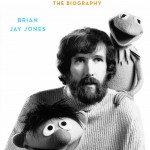I spent nearly my entire life hating sports. I was too cool, smart, and hip to be into sports. My focus was on the important things in life; real things. I didn’t care who made the most points at sportsball the previous week.
Two things happened to turn me from a life-long hater of all-things-sporty to an obsessive sports fan. First, my hands “broke,” which prevented me from playing videogames. Up until then, videogames had been my main hobby and community. But then the two herniated discs in my neck put pressure on my spinal cord which sent pain down to my hands. It was too painful to play anymore. This left a huge vacuum in my life. I needed something trivial to read and talk to my friends about, something for me to focus on when “serious” things in life exhausted me.
Second, just as I gave up videogames, the Baylor Men’s Basketball team was in the middle of their historic, 2010 NCAA Tournament run. The Baylor campus was buzzing with excitement over our team, and so, one day, while looking for distractions from a paper I was writing, I decided to turn on a game to see what the talk was all about. Baylor was playing and destroying Saint Mary’s (final score: 72-49). A few days later, I would pass these players in the hall and see them around campus. What hooked me was seeing the players’s faces and knowing that they went to my university. I cared about the game because I cared about these students. I wanted their hard work and talent to be rewarded. They weren’t just playing a game, they were competing for a chance to justify their lives, to redeem the thousands of hours poured into a craft that only a super-elite will even get paid for.
My love of college sports grew out of a love of stories of human triumph. I eventually learned to love the NBA, but it was hard for me. Professional sports lack the passion, the intensity, the risk of college sports. Professional athletes play for another contract or a better contract or for a legacy; college athletes play for the very slim possibility of a contract. And many of them will devote a huge part of their youth (and their health) just for this chance. We like to pretend that high school and college athletes can both excel at their sport and get a quality education that will prepare them for a future career, but many students won’t have the resources to devote to excellence in both areas. And for all the NCAA’s talk about “student athletes,” the fact is, if you want to have a chance at playing at a professional level, you won’t have much time to excel at your studies.
Perhaps we don’t want to hear this, but from the college athlete’s perspective, investing your resources (time, health, money, opportunities) into becoming the best is a rational choice. The only way anyone ever becomes an elite basketball player is to commit the resources to compete with everyone else. Our culture praises them for this decision. Isn’t playing professional sports simply another articulation of the American Dream? If you discipline yourself and out-work your competitors you can pull yourself out of poverty. Who doesn’t love a rag-to-riches story?
If you listen to enough interviews with college basketball players, you’ll hear a theme. They were raised by their mother and/or grandmother, their AAU coach was a male mentor figure for them, and their goal is to be able to provide for their family. Now, obviously this does not describe all NCAA MBB players, or maybe even most of them, but for many of them this is their reality. They are playing to undo the damage done by absent fathers.
I fell in love with college sports because I wanted to see these players succeed and to see their risk to pay off. They gamble their youth and their future in a desperate bid to achieve something good and provide for those they love. And for the vast majority of them, this gamble will not pay off.
What drew me to college sports is what troubles me most about it. The AAU coaches, the NCAA, the college athletic staff, the colleges, ESPN–everyone else will be fine whether or not any one player makes it as a pro. Everyone else has a relatively low risk-to-reward ratio. But these kids whom we love to watch and cheer on risk everything and will mostly likely see very little in return. That only drives them to play harder, to fight for it more. It makes for great TV and a great story. We love the drama. But should we? Is it right to ask and encourage and even demand that these athletes risk everything for our entertainment?
I’m not sure what can be done to change this amateur sports culture, but there are things the church can do to challenge it. To begin, we could provide quality mentorship in disadvantaged communities so that coaches are not the only male mentors available. We could invest in Early Childhood Intervention programs which would give children the skills and habits they need to be successful in school. What we can’t do is accept the unethical, billion dollar college sports industry.
I love college basketball and football, but the system is broken. It’s not just in the NCAA or the AAU, but a culture that encourages and necessitates that kids devote inordinate resources toward a career that will almost certainly not pay off. Maybe we need to spend more time reflecting on stories of failure and what it costs students, rather than just the stories of success.
This article was adapted from the editor’s letter in the most recent issue of Christ and Pop Culture Magazine, When Sports Change












